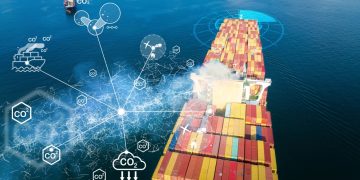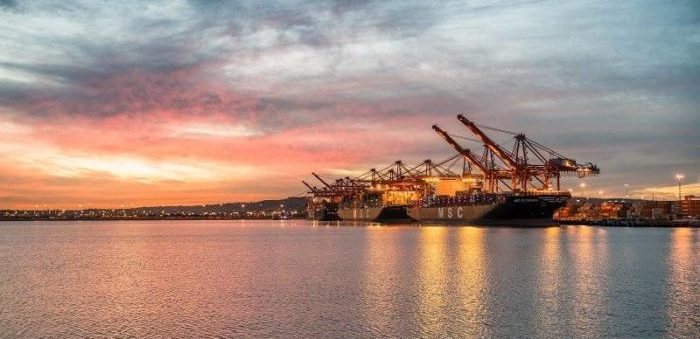Officials from the Port of Long Beach, Southern California Edison and the California Energy Commission launched US’s largest pilot project for zero-emissions cranes and other cargo-handling equipment for seaports, called “Zero-Emissions Terminal Transition Project.”
The project is funded mostly by a $9.7 million grant from the California Energy Commission, and will bring 25 vehicles that are zero – or near zero -emissions to Port of Long Beach marine terminals for one year to test their performance in a real-world setting.
The ports of Long Beach and Los Angeles in 2017 approved an update to their Clean Air Action Plan, setting a target of transitioning all terminal equipment to zero emissions by 2030.
[smlsubform prepend=”GET THE SAFETY4SEA IN YOUR INBOX!” showname=false emailtxt=”” emailholder=”Enter your email address” showsubmit=true submittxt=”Submit” jsthanks=false thankyou=”Thank you for subscribing to our mailing list”]
Long Beach Harbor Commission President Lou Anne Bynum, stated:
The Zero-Emissions Terminal Transition Project kicks off a new era in transportation electrification and the Port’s own transformation to zero-emissions. We are grateful for the partnerships with the Energy Commission and Southern California Edison that are making this a reality.
The project aims to reduce GHG by more than 1,323 tons and smog-causing nitrogen oxides by 27 tons each year. Also, the switch to zero-emissions equipment is expected to save more than 270,000 gallons of diesel fuel.
The project will convert nine diesel-electric rubber-tire gantry cranes into fully electric equipment at one terminal, it will purchase 12 battery-electric yard tractors for two more terminals, and will convert four LNG trucks into plug-in hybrid-electric trucks for a drayage trucking firm.

































































